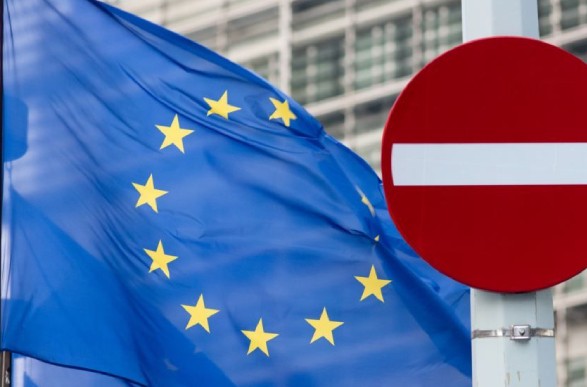The Council of the European Union has officially announced that the EU has adopted the fifth package of sanctions against Russia, which includes a coal embargo, which will take effect in August 2022. At the same time, the European Commission said it was discussing restrictions on Russian oil imports,
KYIV. UkraineGate , 8 , April , 2022 | Ukraine News .
Quote
“In the light of Russia’s ongoing war against Ukraine and reports of atrocities committed by Russian forces in Ukraine, the EU Council today decided to impose a fifth package of economic and individual sanctions against Russia,” the statement said.
The agreed package includes a series of measures aimed at increasing pressure on the Russian government and economy, as well as limiting the Kremlin’s resources for aggression, the EU Council said.
The European Commission said that “the European Commission and the European External Action Service are working on additional proposals for possible sanctions, including on oil imports, and are considering some ideas submitted by Member States, such as taxes or specific payment channels, such as as a deposit account “.
“These latest sanctions were imposed following atrocities committed by Russian forces in Bucha and other Russian-occupied areas. The purpose of our sanctions is to stop the reckless, inhuman and aggressive behavior of Russian troops and to make it clear to Kremlin decision-makers that their illegal aggression is costly, “said Jose Borrell, the EU’s High Representative for Foreign Affairs and Security Policy.
Details
The package includes:
– a ban on the purchase, import or transfer of coal and other solid fuels in the EU, if they originate in Russia or are exported from Russia, from August 2022. Coal imports to the EU now amount to 8 billion euros a year.
– a ban on granting access to EU ports to vessels registered under the Russian flag. Indents are provided for agricultural and food products, humanitarian aid and energy.
– a ban on any Russian and Belarusian trucking companies that do not allow them to transport goods by road within the EU, including in transit. However, indents are provided for a number of products, such as pharmaceuticals, medical, agricultural and food products, including wheat, as well as for road transport for humanitarian purposes.
– further export bans targeting jet fuel and other commodities such as quantum computers and advanced semiconductors, high-tech electronics, software, sensitive equipment and transport equipment, and new bans on imports of products such as timber, cement, fertilizers, seafood and spirits. The agreed bans on exports and imports are only € 10 billion and € 5.5 billion respectively.
– a number of targeted economic measures aimed at strengthening existing measures and closing loopholes, such as: a general EU ban on Russian companies participating in public procurement in Member States, the exclusion of any financial support from Russian authorities, an extended ban on cryptocurrency deposits, and the sale of banknotes and securities denominated in any official currency of the EU Member States, Russia and Belarus, or any natural or legal person, organization or body in Russia and Belarus.
In addition, the EU Council has decided to impose sanctions on companies whose products or technologies played a role in the invasion, key oligarchs and businessmen, high-ranking Kremlin officials, supporters of misinformation and manipulation of information that systematically disseminates the Kremlin’s narrative of Russia’s military aggression in Ukraine. families of people under sanctions to make sure that EU sanctions are not circumvented.
In addition, a total ban on transactions with four key Russian banks, which account for 23% of the Russian banking market. Following the disconnection from SWIFT, these banks are now subject to asset freeze sanctions, so they will be completely cut off from EU markets.
“Relevant regulations will be published in the Official Journal in the near future,” the EU Council said.
Source: Ukrgate







